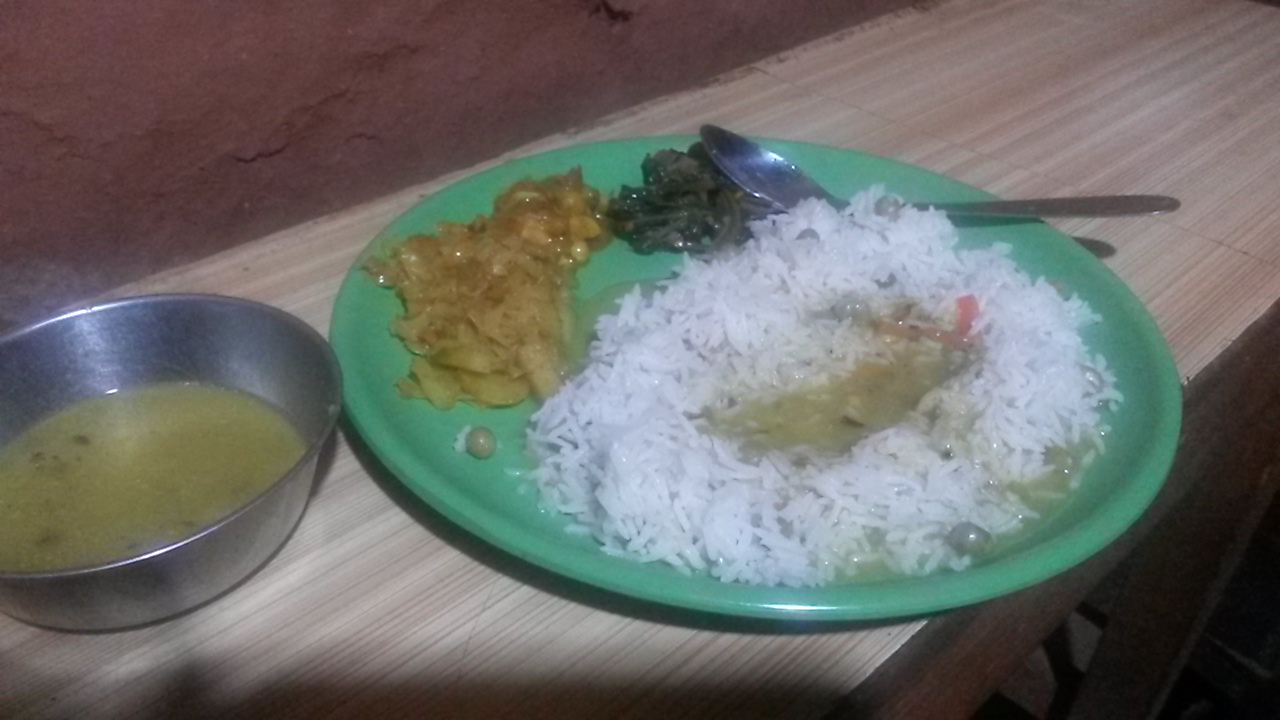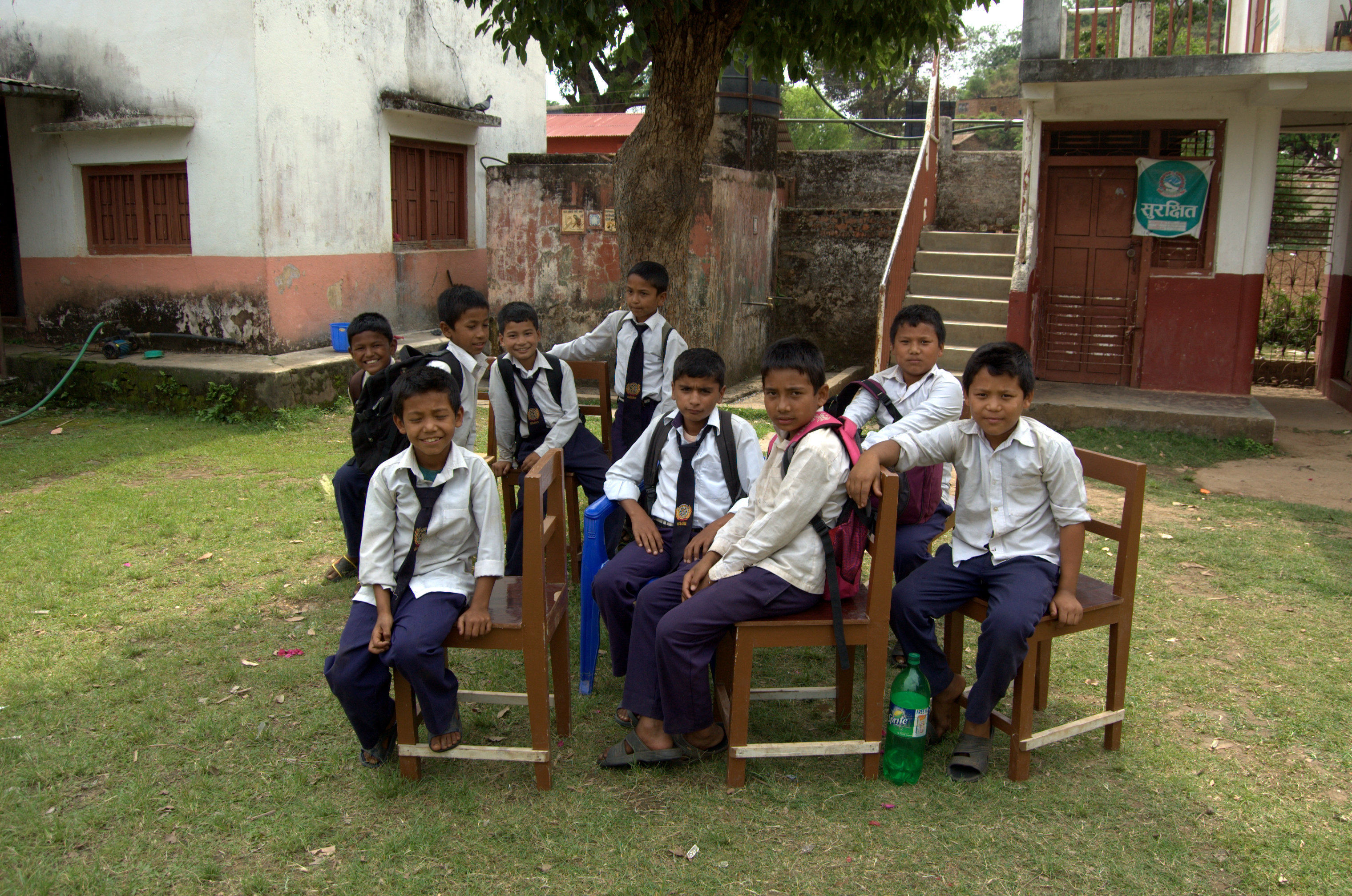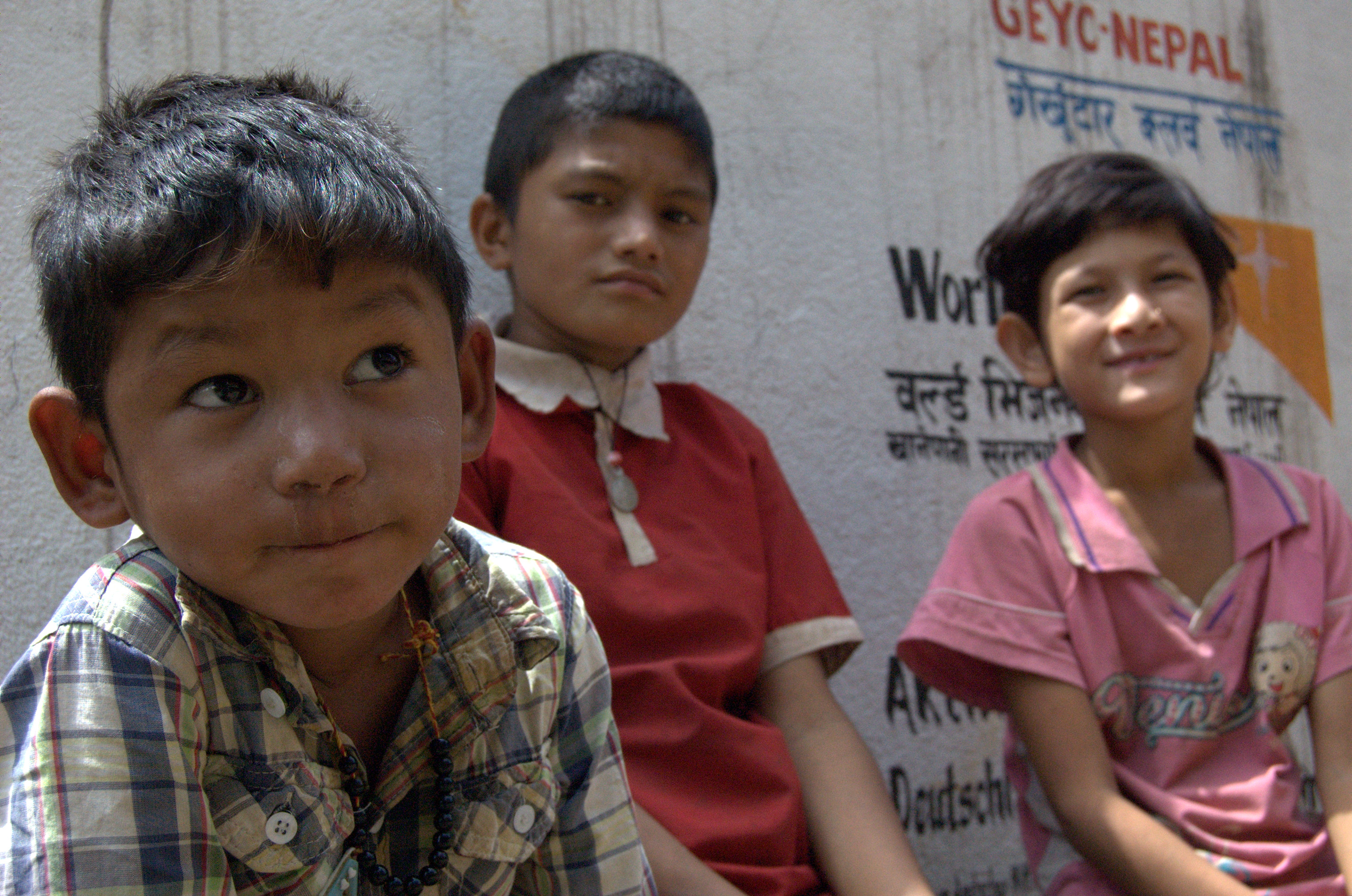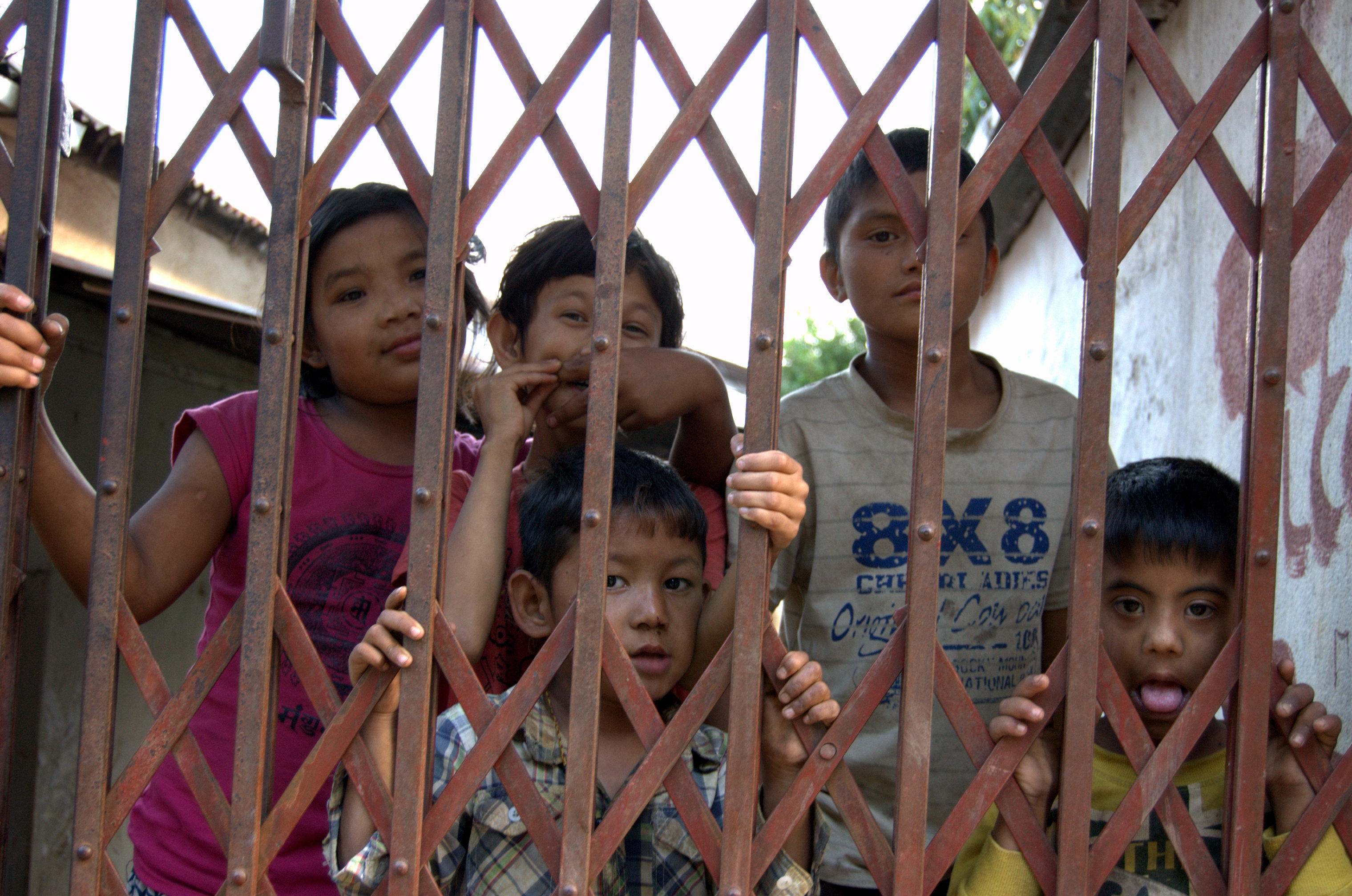Every day is different, especially in regards to the challenges and successes, but here’s a glimpse at today
4am: Get woken up by the rest of the family starting work. The women start each morning by wiping the floors with cow manure (since cows are gods in their religion) to welcome the gods into our home. Since our floors are dirt floors, it just adds a layer to the floor and is completely dry in a few hours. Themen start the cooking fire and cook the fried vegetables they will sell at their shop. I go back to sleep right away.
6:00am: Wake up and meditate for a few minutes. I use those few minutes to center myself and get ready for the day.
7am: One of my deaf students and my host brother are waiting outside the school to go for a quick jog with me. When we’re done running, my friend forces us to do pushups with him.
7:30: Breakfast. My breakfast is usually beaten rice, two hardboiled eggs, a homemade donut, a bowl of spiced chickpeas, a cup of tea, and a glass of milk. I eat breakfast alone because the rest of the family eats it at 5 when they’re done with their early morning activities.
8: Lesson planning. It’s the first day of the girls’ club at school that I’m running, so I go over everything for that. I plan in the evenings but then redesign things in the morning when I look with fresh eyes.
9: Every morning, a group of men come by to talk to me about current events in Nepal and America. I enjoy talking and joking with them over a cup of tea. This morning, they had all just left a town hall meeting. They said the village feels very happy I’m here, which makes me feel great.
9:45: Students start arriving at school. I sit on a bench outside, lesson planning, but make sure to say hello to every student. The school has 550 students, many of whom walk from over two hours one way to get to school. It is expected of the students that they will greet any teacher they encounter with “Good morning, respected teacher.” I learned my first few days here that I should wait for them to greet me before I respond and that I shouldn’t get them to just call me “Katie,” even though it makes me feel uncomfortable. I try to engage each student in a meaningful conversation, but with that many students it isn’t possible. My goal is always to have twenty good conversations with students, but I don’t count. Today, a student shares with me a fruit I’ve never seen before (like a prickly grape).
10:30: Lunch. The first big meal of the day. Nepalis eat two huge meals every day (breakfast and afternoon food are considered snacks, even though they’re also large). The two meals are always the same: lentils, rice, and vegetables. I also eat an egg and a glass of milk with mine, even though no one else does. My host mother sits with me as I eat my lunch and I tell her about what I’m teaching that day. Everyone else has eaten lunch at around 9, since they had breakfast much earlier than I do.

Dal Bhat, the food that is eaten twice a day, every day. Also, this is considered a tiny portion of rice.
11: My first class of the day is eighty 13-15 year olds. We play a game (boys against girls) which they really get into. I’ve been working with them on probability modals for a few days now, and today they finally get it.
11:45: Time to teach forty-five 11-12 year olds. We just finished reading a short fable, and I try to get them to turn the literature into a play. They’d never done anything like what I was requesting, so it took us a while to communicate what a play was. It was frustrating for everyone, but we ended up being somewhat successful.
12:30: I then teach seventy 12-14 year olds. This is my hardest class to teach, but also my favorite. Some of the boys have major issues sitting still; they’re a bit out-of-control, especially since they know I don’t use physical discipline.. They all want to learn, but they also want a lot of attention from me. One of the boys doesn’t answer me when I asked him a question, and a teacher observing my class lifts him up by his hair as punishment. (I’ll address this in an upcoming post, but there’s nothing I can do about banning physical punishment from other teachers. For starters, they’re professionals with teaching certifications, so while I’ve made my opinions clear, I am not the authority here).
1:15: Team meeting with my coteachers. Since today is the first day of the girls’ club, I talk about what I have in store. One of the first things we’re doing is writing about our personal utopias, so I made sure I had the correct Nepali word. During the meeting, a coteacher’s cell phone rings and when he answers it, he motions for me to pick up. It’s a teacher from a different state who I’ve never met asking how my dog bite wound is and how everything’s going. That’s how this country is- there’s a sense of community that’s unlike anywhere else I’ve encountered.
2: I walk back to my room to relax. I read a book (right now I average one book a day). Luckily, I downloaded almost 600 on my tablet before I left, so I have my pick. Today it’s Booker T Washington’s autobiography. I highly recommend it.
3: Time for a snack. On my way to my family’s kitchen, I pass some students who are also enjoying a snack. They offer me some; I don’t know how to describe it- it is this homemade, puffy, fuzzy, bright-yellow cracker thing. The snack my host mother has prepared for me is vegetable chowmein, an omelet, and a cup of tea.
4:15: Outside my family’s small shop, I start lesson planning for tomorrow. I’m interrupted every so often by passersby saying hello and chatting for a few minutes.
4:45: I go to the public tap with my host sister to wash my clothes. I really love hand washing my clothes, now that I know how to do it properly. It’s very relaxing for me.
5:30: My school is home to all the deaf students in the state, who live there year round. There’s a total of ten of them, ages ranging from 4-12. They share three beds in a small room. We play hide-and-seek almost every day. It’s seriously one of my favorite parts of the day, and not at all because it’s easy for me to win when they don’t realize how much noise they’re making.
6:15: I work on lesson planning for a bit longer, and then journal for a bit. After that, it’s time to call my friends and family, because it’s finally morning in the US.
7:15: Dinner. Typically, the men eat first, outside, but since I’m a slower eater, I eat at the same time as my host father, but in a different room. When he’s finished, his wife and children join me. People don’t talk during meals here, but usually I end up talking to my family anyway. I don’t like eating in silence.
8: I stargaze for a few minutes on my walk back to my room. My host siblings are forced to endure me pointing out various constellations to them. The sky here is incredibly defined because there is very little light pollution.
8:15 I read for a while, but the power’s out, so the bugs are attracted to the solar light next to me.
9:00: Time for bed.







